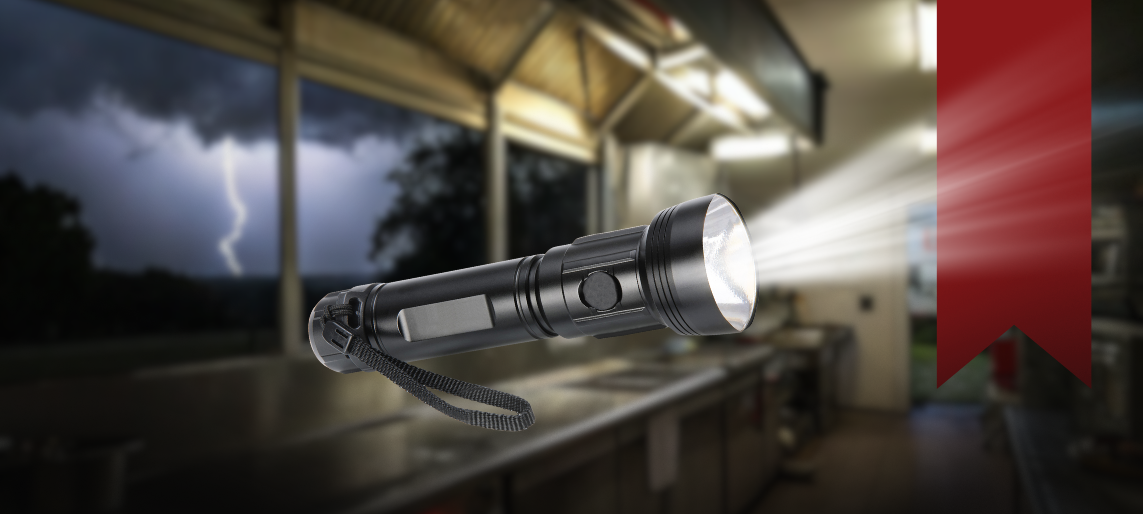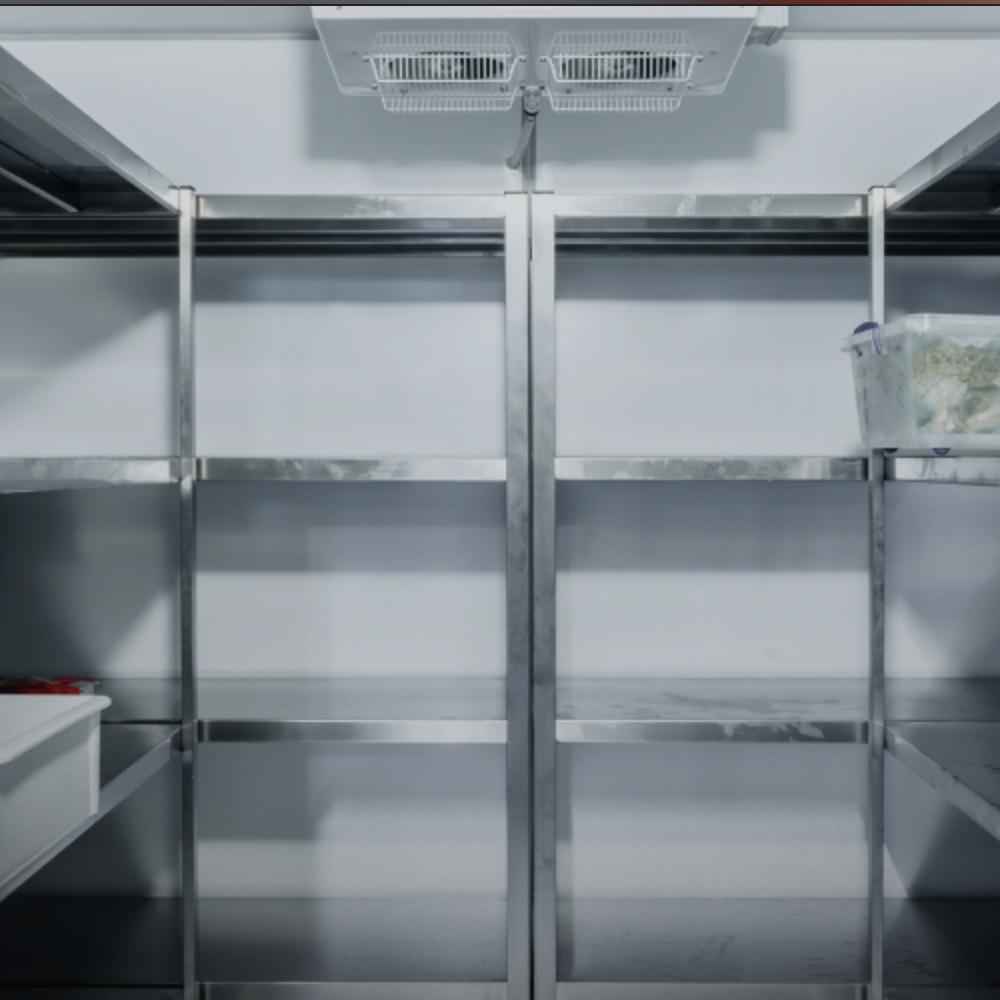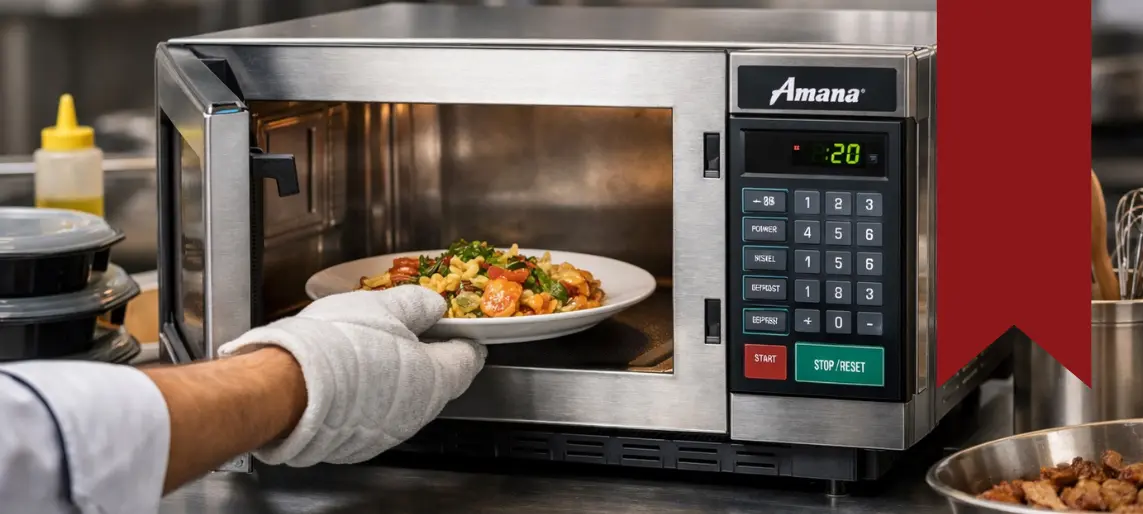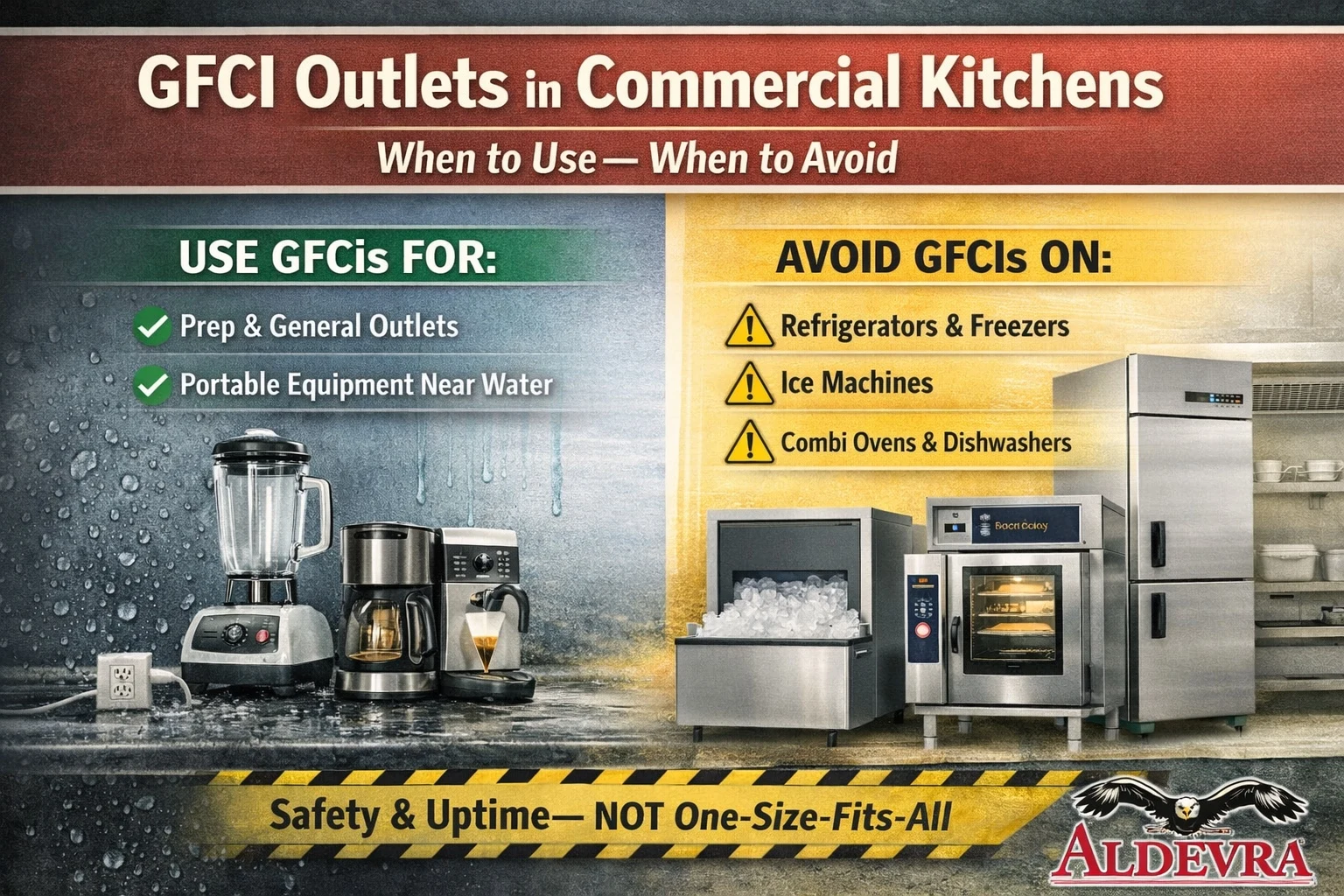
Summary
Emergencies can derail even the most efficient commercial kitchens, especially in critical facilities like VA hospitals, military bases, schools, and correctional institutions. Power outages, equipment failures, and extreme weather events can halt operations unless you’re ready. In this post, Aldevra shares practical steps and equipment solutions to help ensure uninterrupted kitchen operations before, during, and after emergencies.Most commercial kitchens are designed with daily operations in mind—feeding patients, serving service members, or preparing meals for hundreds. But what about when things go wrong?Emergencies such as power outages, equipment breakdowns, severe weather, or pandemics don’t just disrupt schedules—they can threaten safety, compliance, and budgets. For mission-critical facilities, shutting down simply isn’t an option.
What Emergencies Look Like in Commercial Kitchens
Here are the common disruptions we’ve seen impact our clients’ foodservice operations:
- Power Loss: Refrigeration units like walk-ins can only maintain safe temperatures for a limited time. One outage can lead to tens of thousands of dollars in spoiled food.
- Plumbing or Flooding Issues: Even a small leak can trigger mandatory closure under health codes.
- HVAC Failures: Excess heat or poor ventilation can create unsafe working environments and compromise food safety.
- Contamination Events or Pandemics: These spike the need for sealed packaging, disposable items, and alternate food prep workflows—virtually overnight.
- Severe Weather: Hurricanes, tornadoes, and snowstorms can disrupt deliveries, damage infrastructure, or isolate your kitchen entirely.
How to Prepare (and Stay Operational)
✅ Backup Power for Critical Equipment
Don’t just keep the lights on—make sure walk-ins, dishwashers, and exhaust hoods are connected to emergency power systems.
✅ Stockpile Key Disposables
Have a reserve of gloves, to-go trays, sanitizer, and other supplies to support modified service or reduced staffing levels.
✅ Understand Equipment Recovery Limits
Know how long your fridge or freezer can hold temperature without power. Keep a quick-reference sheet—Aldevra can help you build one.
✅ Set Emergency Vendor Contacts
Being a priority customer means faster response and replacements. Contact us now to get pre-qualified for emergency support.
✅ Train Your Team for Crisis Mode
From simplified menus to quick food-holding tricks (like using ice), train staff on what to do in common scenarios.
How Aldevra Supports You — Before, During, and After
- Equipment Selection
- We recommend rugged, resilient models—like ice machines that automatically restart or combi ovens with manual override modes.
- Preventive Maintenance Programs
- Emergencies expose weak links. Our PM services reduce the risk of breakdowns at the worst possible moment.
- Rapid Replacements & Loaners
- If a critical unit fails, we work quickly to source replacements or provide temporary solutions to keep you running.
- Compliance Documentation Support
- After an incident, especially in government facilities, documentation matters. We help ensure you have proper records of your response and actions to remain compliant.
Bottom Line
Emergencies test more than your infrastructure—they test your ability to continue serving safely, legally, and efficiently. The time to plan isn’t when the freezer goes dark or the delivery truck can’t get through.
From VA hospitals to military bases, Aldevra helps build resilient kitchens. Let’s make sure you’re ready—before the next emergency hits.
📞 Contact Aldevra today to review your kitchen’s emergency readiness.
FAQs
Q: What types of equipment should be prioritized for backup power?
A: Focus on refrigeration (walk-ins, reach-ins), dishwashers, exhaust hoods, and anything essential to food safety or ventilation.
Q: Does Aldevra offer emergency response services?
A: Yes. We provide rapid equipment sourcing, replacements, and vendor coordination for existing customers during emergencies.
Q: How can I prepare my team for kitchen-related emergencies?
A: Start with simple checklists and basic training on power loss protocols, flood response, and modified menu options.
Q: Can Aldevra help with documentation after an incident?
A: Absolutely. For government customers especially, we help prepare compliance-ready documentation to show your response met food safety and operational standards.
Q: Do you offer preventive maintenance contracts?
A: Yes. Regular PM is one of the best ways to avoid emergency breakdowns. Our service plans are tailored to high-use government and institutional kitchens.









.webp)

